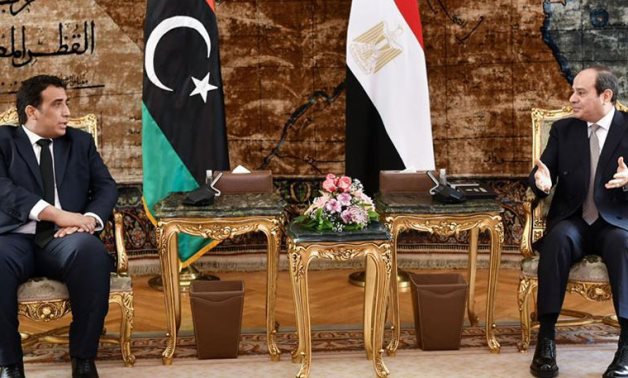Egypt secures $20 billion in investment contracts during high-profile trade mission to Libya

A recent mission by the Federation of Egyptian Industries (FEI) to Libya has resulted in agreements and contracts valued at approximately $20 billion.
The eight-day visit, involving 43 Egyptian companies, aimed to boost economic cooperation between the two countries and support Egypt’s growing export footprint in the Libyan market.
The mission, themed “Together Towards Africa,” was designed to strengthen ties and contribute to Libya’s ongoing reconstruction efforts.
During their stay in the cities of Tripoli and Benghazi, FEI representatives signed multiple agreements and memorandums of understanding with the Benghazi Chamber of Commerce, Industry, and Agriculture, led by Moneim Al-Saiti, as well as with the Tripoli General Union of Chambers of Commerce, Industry, and Agriculture, headed by Mohamed Abdel Karim Al-Raid, and Emaar Libya Holding Company.
These agreements focus on developing joint investment initiatives, particularly in areas essential to reconstruction, and expanding Egyptian exports.
In addition, two exhibitions titled “Made in Egypt” are scheduled for Benghazi and Tripoli to increase the visibility of Egyptian goods in Libya.
This initiative aligns with Egypt’s broader strategy to enhance its export presence in North Africa.
Mohamed Al-Bahi, head of the mission and a member of the FEI’s Arab Cooperation Committee, addressed misconceptions held in Libya regarding Egyptian pharmaceutical products.
There had been a belief that only international companies could export medicines, leading to the spread of unregulated, low-cost alternatives on the Libyan market.
“This misconception has allowed substandard products to infiltrate the market, posing health risks due to unreliable sources,” Al-Bahi noted, highlighting that Egypt has robust pharmaceutical companies capable of legally and safely exporting to Libya.
These engagements led several Libyan businesses to form immediate contracts with Egyptian firms, meeting demand in sectors such as metals, wood, chemicals, and construction materials.
Additionally, plans for specialized factories, including one for high-quality ice resistant to bacteria, were announced to support reconstruction efforts.
Agreements were also signed for Libyan investments in Egypt, establishing joint industrial zones, creating training programs for workers, and facilitating further cooperation.
Al-Bahi praised the hospitality shown by Libyan officials, including Minister of Economy Mohamed Al-Hawaij, who met frequently with the Egyptian delegation, underscoring Libya’s openness to economic collaboration.
“Libya’s unique features, including an 1,850-kilometer coastline, position it as an attractive market for Egyptian products,” Al-Bahi remarked, adding that Libya’s tourism potential also makes it a promising destination for consumer goods.
The visit marks a significant step in bolstering economic ties between Egypt and Libya as they pursue mutual growth opportunities.
About The Author
dailymailafric
I am an avid African news observer, and an active member of Daily Mail Africa.
I’m Passionate about staying informed on diverse topics across the continent,
I actively contribute to publishing on political, economic and cultural developments in Africa.



